A four-week program at UBC
for international students who crave wisdom and adventure
Discover a Canadian Vancouver lens
and learn about a field that might inspire you!
Applications are open! Click here to apply now
Read this page and still have questions? Come to VSP's December 09 infosession
Applications open now
Applications close: March 13, 2026
This coming June 2026, we proudly present:
In PLAN A JUNE: Planning for Resilient Cities
Course: Planning for Disasters and Resilient Communities
(click to expand)
- Prerequisites: No prerequisites
- Graduate (Master/PhD) Students: Not accepted
- Minors (students aged under 19 at the start of the program): Not Accepted
Course description
Every disaster is a tragedy, but also an opportunity to make communities more resilient to future risks. This course introduces students to the fundamentals of disasters, disaster risk reduction (DRR), and disaster resilience planning, emphasizing how cities can prepare for, withstand, and adapt to different types of disasters and crises. Drawing on real-world cases from Türkiye (Gaziantep and Antioch), Beirut (Lebanon), and Vancouver (Canada), the course examines how different disaster governance systems, institutions, and communities shape disaster preparedness and recovery. Students will learn (1) how to identify key factors influencing disaster risk, (2) how spatial tools and mapping can be used in disasters, and (3) how communities can prepare for disasters. The course includes field trips in Vancouver to disaster preparedness sites such as City Hall, the Fire Department, and a local volunteer group that established an Earthquake and Emergency Preparedness initiative to help their community plan for disasters. It will also feature guest speakers from Lebanon and Türkiye who will share their firsthand experiences with disaster response, innovative mapping practices, and community-led recovery efforts.
Course: Introduction to Urban Climate Adaptation
(click to expand)
- Prerequisites: No prerequisites
- Graduate (Master/PhD) Students: Not accepted
- Minors (students aged under 19 at the start of the program): Not Accepted
Course description
How can cities prepare for heatwaves, flooding, and wildfire smoke? This course explores how Vancouver is adapting to climate change and making the city safer and greener for everyone.
Students will learn how to (1) analyse spatial data to identify climate vulnerabilities, and (2) assess the strengths and weaknesses in existing urban climate actions. We will use GIS (Geographic Information Systems) tools like QGIS to make simple maps and analyze real data from Vancouver and combine that with hand-drawn maps and field observations collected during outdoor strata walks around the city. Students will visit examples of climate action in Vancouver, such as a cooling and clean air shelter, green stormwater infrastructure, and take part in an environmental stewardship activity like removing invasive plants or planting native species along a local creek.

Your co-instructor, SCARP PhD student Ana Polgár
Ana researches how nature-based solutions for climate-change adaptation affect, reinforce or respond to socio-spatial inequalities in cities in the Global South. Through a number of case studies in the Global South, Ana aims to recognize and address the realities of urban socio-spatial inequalities. This approach aims to support the localized management of resilience needs, and will help cities to more appropriately respond to the specific vulnerabilities of local communities with NBS.
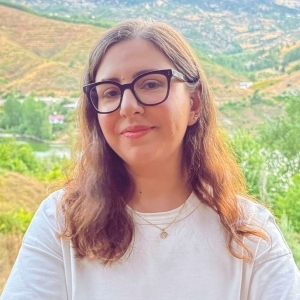
Your co-instructor, SCARP PhD student Hayfaa Abou Ibrahim
Hayfaa's research interests lie in urban planning and policy, with a particular focus on urban governance, planning actors, disasters and crises, and housing and emergency shelter. She is deeply interested in how planning actors shape the urban and spatial production of space, particularly in fragile and contested contexts. She's passionate about conducting empirical and comparative case-study research, using qualitative and mixed methods.
In PLAN B JUNE: Planning for Urban Street Transformations
In the world of urban development, when planning for urban mobility and livability, analysis and design go hand-in-hand. In this package, students will learn and practice the technical and theoretical skills needed to navigate this dual process.
Course: A View from the Street – Analyzing the Arteries of our Cities
(click to expand)
- Prerequisites: No prerequisites
- Graduate (Master/PhD) Students: Not accepted
- Minors (students aged under 19 at the start of the program): Not Accepted
Course description
This course invites students to learn how to assess the qualities of urban streets and life between buildings by walking, biking, rolling, and taking public transit in the Vancouver metropolitan area. Streets are the connective tissue of cities, allowing people, goods, and utilities to move. But streets are more than just places of interaction between people; they are spaces that reflect culture, social values, and political power. Working in teams, students will review and analyze urban streets using mixed-method analytical tools. Experiencing the street from different types of mobility, students will use video, images, and sketching to analyze streets in person and by using online tools. Building students’ visual and written communication skills, our street explorations will include multiple mapping techniques, popularized by Jane Jacobs and William Whyte, for example. Meeting with local and international professionals, students will learn about the systems that make up good and bad urban streets and be able to critically assess the causes of positive and adverse conditions. By the end of this course, students will be able to meaningfully analyze, present, and discuss urban networks (and problems) with decision makers, professionals, and the public on issues concerning urban streets, including parking, active- and transit-network development, housing legislation, and more.
By the end of the course, students will:
- Be able to compare and contrast the various elements of urban streets, how they were developed, and whom they serve.
- Obtain critical analysis and observational skills needed for the assessment of mobility and place activities in the streets.
- Practice graphic skills, such as sketching and mapping of urban places and people, using multiple media types. and some outcomes for each course.
Course: (Re)Designing from Cars to People
(click to expand)
- Prerequisites: No prerequisites
- Graduate (Master/PhD) Students: Not accepted
- Minors (students aged under 19 at the start of the program): Not Accepted
Course description
The climate crisis has challenged cities to rethink the balance of mobility and place functions in urban streets, but they are often met with resistance related to the automobile. Building on multi-lens design and planning analysis practices, this course focuses on what sustainability means to urban development and the use of private single-occupancy cars in dense places. Our focus will be on the challenges and opportunities of street transformations toward more sustainable, equitable, and healthy forms. The process of change will be illuminated by lectures, discussions with planners, engineers, urban designers, and advocates, and hands-on design exercises. Using multiple lenses of analysis and media types, students will visit sites in Vancouver and the region that have implemented neighbourhood plazas, school play streets, street art, active transportation infrastructure design, traffic calming, street closure to cars, and many more. At the same time, we will also look at international examples of sustainable urban development like Barcelona’s Superblocks and New York City’s bikeways and plaza program. Throughout this course, in small groups, students will develop their own vision of urban street transformation, using multiple media types.
By the end of the course, students will:
- Understand various urban street interventions, including design, policy, and infrastructure trade-offs between business-as-usual and sustainability.
- Be able to explain the complexities, conflicts, and opportunities of sustainable street redesign.
- Compose a street design proposal based on their own analysis of a real-world street.

Your instructor, SCARP Postdoc Dr. Esther Zipori
Esthi's research interests include the automobility system (past, present, future), sustainable (and sufficient) urban planning, alternative mobilities, and transitions (society and technology). She is part of a trans-disciplinary research cluster, Rethinking the Right-of-Way (ReROW). Trained as an architect, infrastructure planner, and social scientist, Esthi's work spans research, design, planning, and education.
No matter where in the world you study, at VSP you can take two courses at this world-renowned university and learn about Canadian practices and culture.
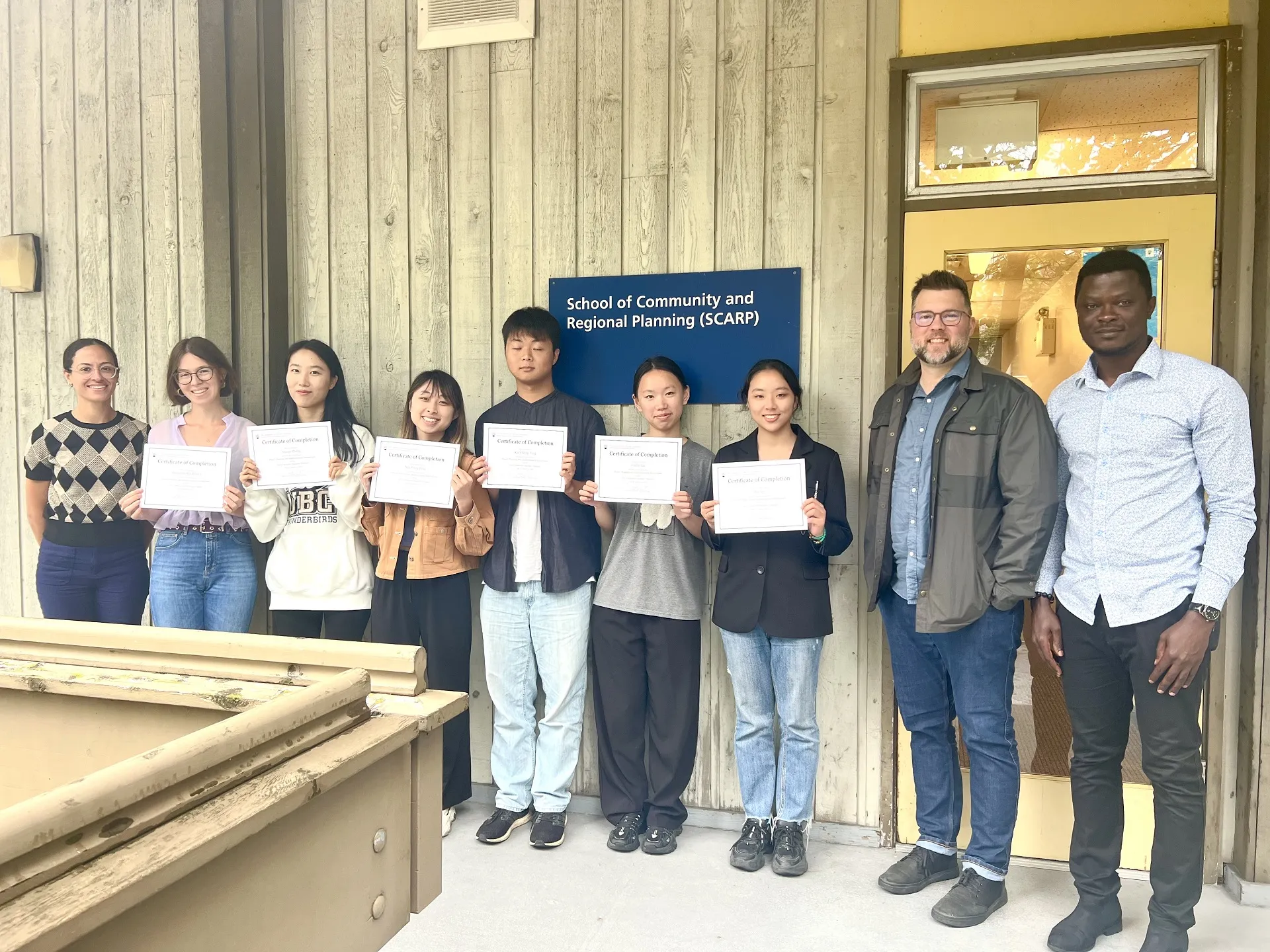
While learning about these topics, you have a chance to immerse yourself in Canada's diverse culture and practice language skills and trades, as well as learn a new perspective in your own field or passion. In addition to interactive lectures and tours of the region, you can take part in a variety of social activities where you will meet students from other universities and UBC.
Some past VSP SCARP students on their experience
Institution: University of the Philippines
Alessandra Nicole Baldovino
"My time at VSP with SCARP was unforgettable. It taught me more about planning and the importance of sustainability initiatives for the future of our cities and communities, especially in the context of climate change. I learned how planning takes place in the real world and the drivers behind these changes. It was an immersive and fun opportunity to go on field trips, get to know classmates from different cultures, and explore the city of Vancouver. I will dearly look back at all the memories we made at the beautiful campus and with people from UBC."
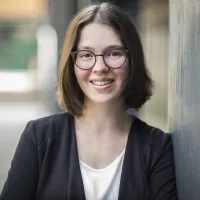
Institution: University of Edinburgh
Alexandra Knoblauch, 2023
"I did not know what planning and project management involved before coming to UBC for the VSP programme with SCARP. The course taught me a lot about planning and I feel more confident now in organising projects. Besides learning new skills, I met a lot of new, friendly and interesting people during my time at UBC. Throughout the course we have bonded and grown together and I believe we will remain friends for a long time. I will always think back of the friendships and memories I have made at UBC and wish that I could have stayed for longer."
What more past VSP students say about the program
On the plane back home, I couldn’t help remembering the wonderful moments that I came across in the campus of UBC. I attended the summer program in the School of Community and Regional Planning. From kind and knowledgeable professors to diverse and cooperative students, from time-honour anthropology museum to elegant botanical gardens, from the GIS project in my laptop to the new perspective of Big Data in my mind, I told myself that it was a month worth more than a month time.
As an interdisciplinary program, community and regional planning offer me the chance to get to know people from different kinds of majors, including geography, politics, computer science and finance. We shared and discussed different perspectives with various knowledge backgrounds during our group project and after-class team activities. I think it is an invaluable opportunity to gain knowledge in other fields and cooperate with people from diverse knowledge background.
The program was overall a nice experience, I learned not just academically, but also personally.
Fantastic!
This is a very precious experience.
It was just the right kind of experience I wanted to have studying abroad; it was like a vacation but with a purpose, that purpose being learning new things.
It’s unforgettable for me to spend this summer holiday studying in one of the most outstanding universities all over the world with such a group of nice classmates!
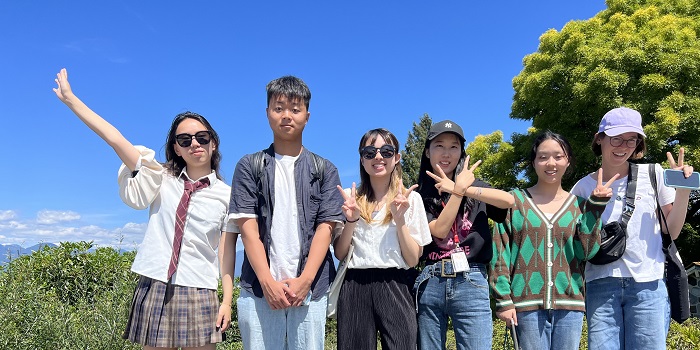
Signing up
The fee per student for each 2025 program package is $5,975 CAD, which includes course materials, medical insurance, group airport transfer and city tour, shared accommodation on UBC campus, orientation and farewell events, and potential social activities (optional trips may require an additional fee).
Students are responsible for the cost of food, transportation, and personal expenses.
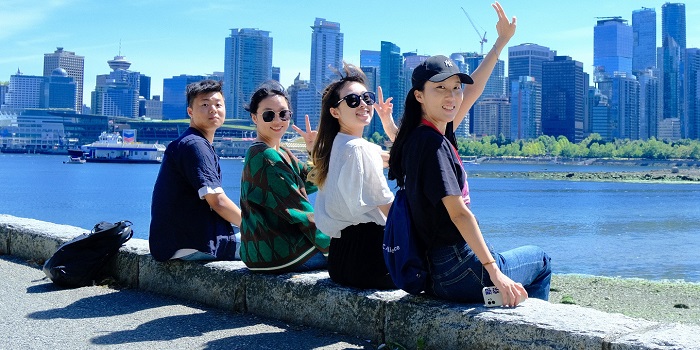
Eligibility
Find out if you qualify for the program. To apply for the Vancouver Summer Program, you must be an undergraduate student* at a post-secondary institution outside of Canada and at least 18** years of age on the first day of the program. More details below.
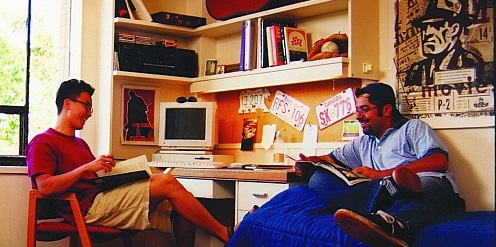
Accommodations
Accommodations are in UBC’s on-campus residences and feature Easy access to classrooms, recreation and campus amenities, free Wifi in lobby and wired high speed Internet in guest rooms, and laundry on site.